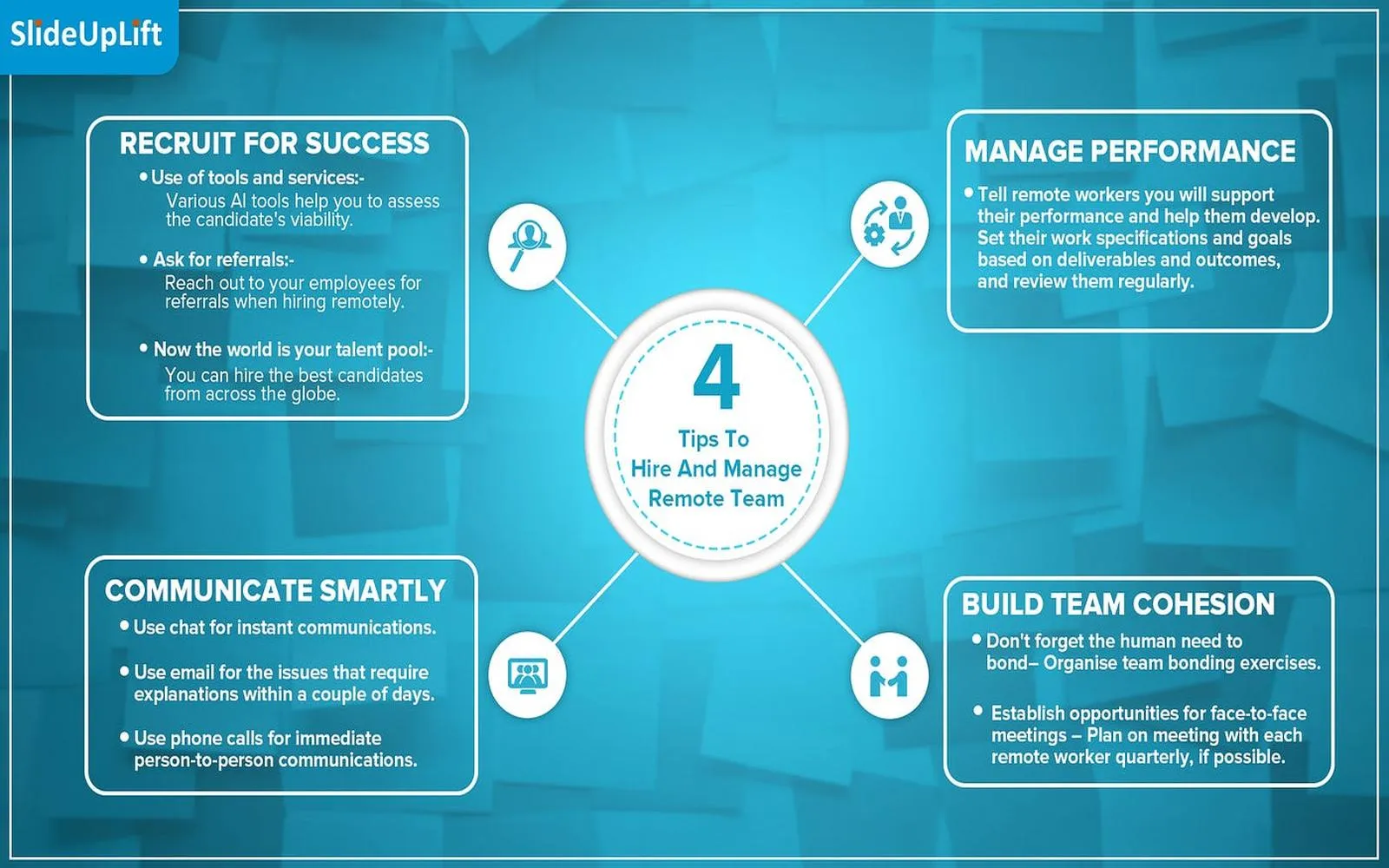
Unveiling the Top AI Editing Assistants
In what has been a horrific week in aviation, a PAL Airlines aircraft operating as Air Canada flight AC2259 made an emergency landing at Halifax Stanfield International Airport on Saturday night due to a landing gear failure, which resulted in a fire.

Here's what happens if you work from home without a routine
Working from home without a routine can lead to a lack of structure and focus, making it challenging to separate personal and professional life. Distractions may become more prevalent, resulting in decreased productivity and motivation. The absence of set hours can blur boundaries, causing longer work hours and potential burnout. Additionally, without a clear schedule, individuals may struggle with time management, leading to missed deadlines and increased stress. Establishing a routine is crucial for maintaining balance and effectiveness in a remote work environment.

18 work from home tips other tech companies won't tell you
Discover effective strategies for enhancing productivity while working from home, tailored to help you thrive in a remote environment. This guide shares unique insights often overlooked by tech companies, focusing on creating a conducive workspace, establishing a healthy work-life balance, and fostering communication with colleagues. Learn how to leverage technology to your advantage, maintain motivation, and implement self-care practices that boost both mental and physical well-being. Embrace these tips to transform your remote work experience into a successful and fulfilling journey.

3 things I learned in my first year of remote work
In my first year of remote work, I discovered the importance of establishing a dedicated workspace to enhance focus and productivity. I learned to communicate effectively, using various tools to stay connected with my team and ensure collaboration despite the distance. Additionally, I realized the value of setting boundaries between work and personal life, which helped prevent burnout and maintain a healthy work-life balance. Overall, these insights have significantly improved my remote working experience.

Beyond 9 to 5: A glimpse into some unusual work from home schedules
Exploring the evolving landscape of remote work, this piece highlights unconventional work-from-home schedules that break the traditional 9 to 5 mold. It showcases individuals who embrace flexibility, opting for unique hours that align with personal productivity peaks and lifestyle choices. From night owls tackling tasks under moonlight to early risers seizing the quiet morning hours, these diverse schedules reflect a growing trend towards autonomy in the workplace, allowing for a better work-life balance and enhanced creativity.

Don't work more when you work from home
Working from home offers flexibility, but it can blur the boundaries between professional and personal life. To maintain a healthy work-life balance, it's essential to set clear boundaries. Establish a designated workspace, stick to a consistent schedule, and take regular breaks to recharge. Avoid the temptation to extend work hours or check emails after hours. Prioritizing self-care and downtime helps prevent burnout and enhances productivity, ensuring that your work remains efficient and fulfilling without encroaching on your personal time.

Want to keep working from home? Here's how to ask.
If you're looking to continue working from home, it's essential to approach the conversation with your employer thoughtfully. Start by highlighting your productivity and any positive outcomes from remote work. Express your desire to maintain this arrangement while addressing any concerns they might have. Be prepared to discuss your work habits and how you plan to stay connected with the team. A well-structured request can demonstrate your commitment and professionalism, making it easier for your employer to consider your proposal.

How to hire a remote team
Hiring a remote team involves several key steps to ensure a successful recruitment process. Start by clearly defining the roles and responsibilities needed, followed by crafting compelling job descriptions that attract the right candidates. Utilize various online platforms to post job listings and actively seek talent. During the interview process, prioritize candidates' communication skills and self-discipline, as these are crucial for remote work. Finally, implement effective onboarding practices to integrate new hires into your company culture and maintain strong team collaboration.

Why remote work shouldn't mean micromanaging—and what to do instead
Remote work should foster trust and autonomy rather than micromanagement, which can lead to decreased morale and productivity. Instead of closely monitoring every task, leaders should focus on clear communication, setting expectations, and empowering employees to take ownership of their work. Encouraging regular check-ins and feedback fosters collaboration and ensures accountability while allowing team members the flexibility to manage their time effectively. Emphasizing results over processes can create a more positive and productive remote work environment.

5 remote work tips college students can use this year
Navigating remote work as a college student can be challenging yet rewarding. Establish a dedicated workspace to enhance focus and productivity. Create a structured schedule that mimics a traditional workday, incorporating breaks to maintain energy levels. Leverage technology by utilizing collaboration tools and apps for better communication with peers and professors. Prioritize self-care to manage stress and maintain a healthy work-life balance. Finally, stay organized by setting clear goals and deadlines to keep track of tasks and responsibilities effectively.

How to run virtual icebreakers that actually work
Running effective virtual icebreakers involves creating an inclusive and engaging environment that encourages participation. Start by selecting activities that cater to diverse interests and comfort levels, ensuring everyone can contribute. Use open-ended questions to spark conversation and foster connections among participants. Incorporate visual elements or interactive tools to enhance engagement. It's important to establish a relaxed atmosphere where team members feel safe sharing personal insights, ultimately building rapport and enhancing collaboration in a virtual setting.

Collaborate like a kid: What preschoolers can teach us about adjusting to remote work
In a world increasingly reliant on remote work, we can learn valuable lessons from preschoolers about collaboration. Their natural ability to share, communicate openly, and adapt to new situations highlights the importance of flexibility and creativity in a virtual environment. By embracing a playful mindset, adults can foster a sense of community, encourage teamwork, and enhance problem-solving skills. Observing how children navigate challenges with enthusiasm and curiosity can inspire more effective and enjoyable remote work experiences for everyone involved.

5 remote team activities that aren't Zoom happy hours
Engaging remote teams can go beyond traditional Zoom happy hours. Consider organizing virtual escape rooms, where team members collaborate to solve puzzles and challenges. Host a themed cooking or baking session, allowing colleagues to share recipes and culinary tips. Create a book or movie club to foster discussions and shared interests. Implement a wellness challenge that encourages physical activity and mindfulness practices. Lastly, try a virtual talent show, giving everyone a chance to showcase their unique skills and talents in a fun environment.

How to support your employees who are working remotely with kids at home
Supporting employees working remotely with children at home requires a compassionate approach. Encourage open communication, allowing them to express challenges and needs. Offer flexible work hours to accommodate childcare responsibilities. Provide access to resources such as virtual childcare options or online educational tools. Foster a culture of understanding by promoting regular check-ins and team bonding activities, helping employees feel connected. Additionally, consider implementing mental health resources to support their well-being, recognizing the unique pressures they face in balancing work and family life.

Slack, Zoom, and other apps go offline sometimes—make sure you have a plan
Reliance on communication and collaboration apps like Slack and Zoom has become essential for many businesses, but these platforms can experience outages. To mitigate disruptions, it’s important to have a backup plan in place. This can include alternative communication tools, offline work strategies, and clear protocols for maintaining productivity during downtime. Regularly reviewing these plans can ensure teams remain connected and efficient, even when their primary tools are unavailable, ultimately fostering resilience in the face of technological challenges.

How calls with random coworkers make remote work better—and more productive
Engaging in spontaneous calls with random coworkers can significantly enhance the remote work experience. These brief interactions foster connections, boost morale, and create a sense of community that often feels lacking in virtual environments. By breaking the monotony of solitary work, these conversations encourage collaboration, spark creativity, and provide valuable opportunities for idea exchange. Ultimately, fostering these informal connections leads to increased productivity and a more enjoyable work atmosphere, making remote teams feel more cohesive and engaged.

How to implement a hybrid work model
Implementing a hybrid work model involves creating a flexible environment that accommodates both remote and in-office employees. Start by assessing team roles and individual preferences to determine optimal work arrangements. Establish clear communication channels and collaborative tools to maintain connectivity and engagement. Set guidelines for in-office days to ensure team cohesion while respecting personal needs. Regularly gather feedback to refine the model, ensuring it meets the evolving demands of the workforce and enhances productivity and job satisfaction.

How to be a good coworker to your pets
Being a good coworker to your pets involves creating a supportive and enriching environment for them while you work. Establish a comfortable space where they can relax nearby, ensuring they have toys and activities to keep them engaged. Schedule regular breaks to give them attention and exercise, fostering a strong bond. Communicate with kindness, recognizing their needs and moods. By balancing your work responsibilities with their well-being, you create a harmonious atmosphere that benefits both you and your furry companions.

How to make virtual meetings fun
To make virtual meetings engaging, start by incorporating interactive elements like polls and quizzes to encourage participation. Use breakout rooms for smaller group discussions, fostering collaboration and connection among team members. Introduce themes or dress codes to add a playful touch, and share fun icebreaker questions to ease any tension. Additionally, utilize creative visuals and multimedia to keep the energy up. Finally, ensure that everyone has a chance to speak, promoting a sense of inclusivity and teamwork throughout the meeting.

Remote work doesn't have to be from home
Remote work offers the flexibility to choose work environments beyond the traditional home office. Whether it's a cozy café, a co-working space, or even a park, professionals can find settings that enhance their productivity and creativity. This flexibility not only helps in breaking the monotony of working from home but also fosters a better work-life balance. By exploring various locations, individuals can tailor their work experience to suit their preferences and needs, ultimately leading to increased job satisfaction and effectiveness.

Lead your remote team like a magician by conquering these 5 cognitive biases
Effectively leading a remote team requires an understanding of cognitive biases that can influence decision-making and communication. By mastering these biases, leaders can enhance collaboration and productivity. Recognizing tendencies such as confirmation bias, anchoring, and the Dunning-Kruger effect allows leaders to foster a more inclusive and innovative environment. Implementing strategies to counteract these biases not only strengthens team dynamics but also empowers team members to contribute their best ideas, ultimately creating a more cohesive and successful remote working experience.